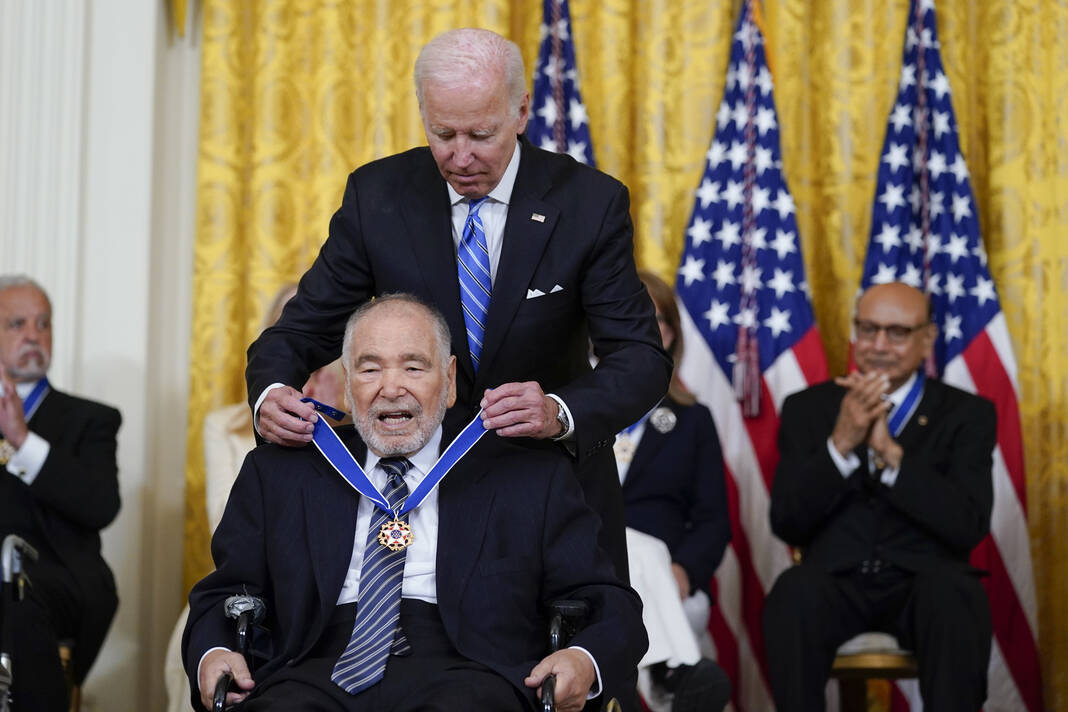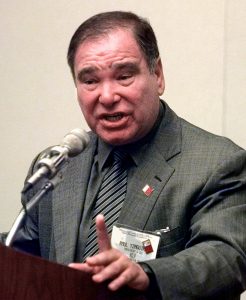
You could measure the labors and successes that led to President Joe Biden draping the Presidential Medal of Freedom around civil rights leader Raúl Yzaguirre’s neck on July 7 in a number of ways.
You could measure it in the success of the National Council of La Raza, now known as UnidosUS. Yzaguirre, a San Juan native led that organization for decades. It’s transformed from a relatively small organization focused on Mexican-American issues to a pan-Latino organization with tens of millions of dollars and a strong advocacy voice.
You could measure it in presidential tenures. Yzaguirre was a force to be reckoned with for virtually every president from LBJ to Obama, clashing with some of them and serving as Obama’s ambassador to the Dominican Republic.
You could measure it in sacrifice. In countless long hours and big pots of beans, Yzaguirre’s family’s staple supper for hard years where paychecks were scarce and money was tight.
The best way, perhaps, to measure what all led up to 82-year-old Yzaguirre receiving the nation’s highest civilian honor is in the number of doors he helped open: for immigrants, people of color and for women.
Yzaguirre earned himself a seat at the table, and he used that position to fight for others having the same opportunity, often by advocating for immigration reforms, economic innovations and community organizing. In a statement, Yzaguirre wrote that he accepted the medal on behalf of the UnidosUS staff, whose “dedication has made it possible for those of us in leadership positions to get recognition that truly belongs to them.”
“Reflecting on my lifetime journey, I am proud of the fact that we all continue to be motivated by our desire to make the promise of the American Dream a reality,” he wrote. “For too long, Hispanics have been absent from that promise, even though they were historically among the first Americans — as well as the newest Americans — and continue to make enormous contributions to our society and our economy.”
The story of Yzaguirre’s contributions begins in San Juan. The oldest of five, he went to live with his grandparents at a young age. He ran away at age 13, working on a boat in Corpus Christi for a time, before returning home to the Rio Grande Valley.
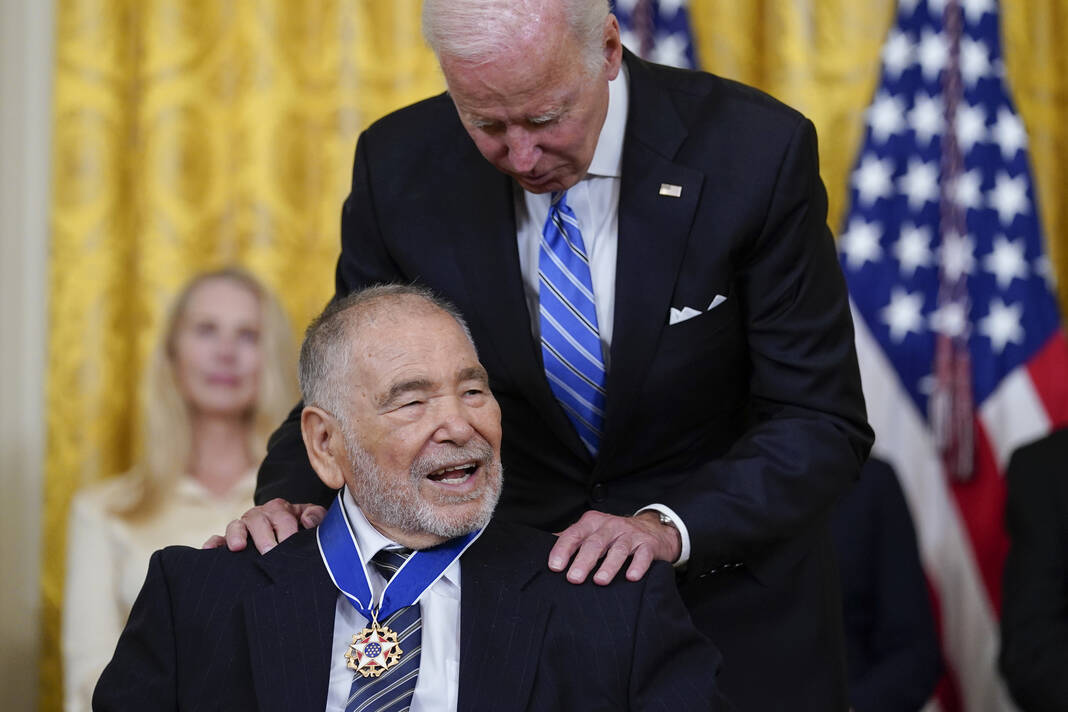
The Valley Yzaguirre returned to was bitterly divided along racial lines, Raúl’s son, Roberto, said.
“You know, this was back in San Juan when you didn’t cross the railroad tracks after dark if you were Mexican or Mexican-American,” he said. “There was an anglo side of town and a Mexican side of town, and everybody knew where it was. His schools were primarily segregated until high school. I think that had a big impact.”
Raúl went on to serve with the Air Force and studied at George Washington University. He became a protege of civil rights leader Dr. Hector P. García, who formed the American GI Forum.
Raúl was elected president of the NCLR in the 70s, bringing vision, passion and a remarkably strong work ethic to the group.
“He worked. Jesus,” Rick Bela, a close friend and colleague of Raúl’s, said. “We worked and partied. He worked and worked. He just had a commitment, and a broad understanding of how politics, policies and economics played together to make room in America for immigrants.”
Making room for people took vision — seeing the bigger picture and long term civil rights goals. Roberto describes his father fighting to make half of La Raza’s board women in the 70s, an eyebrow raising notion at the time.
In particular, Raúl worked to expand membership in the primarily Mexican-American La Raza to include other Hispanic groups. “What people don’t understand is that that was a radical idea,” Roberto said. “For Puerto Ricans and Cubans and Dominicans and Mexicans and Bolivians and Colombians and etcetera — for all those folks to get together under one roof was a radical idea in the 70s. And a lot of people thought it couldn’t be done. And now we accept it as what it should be.”
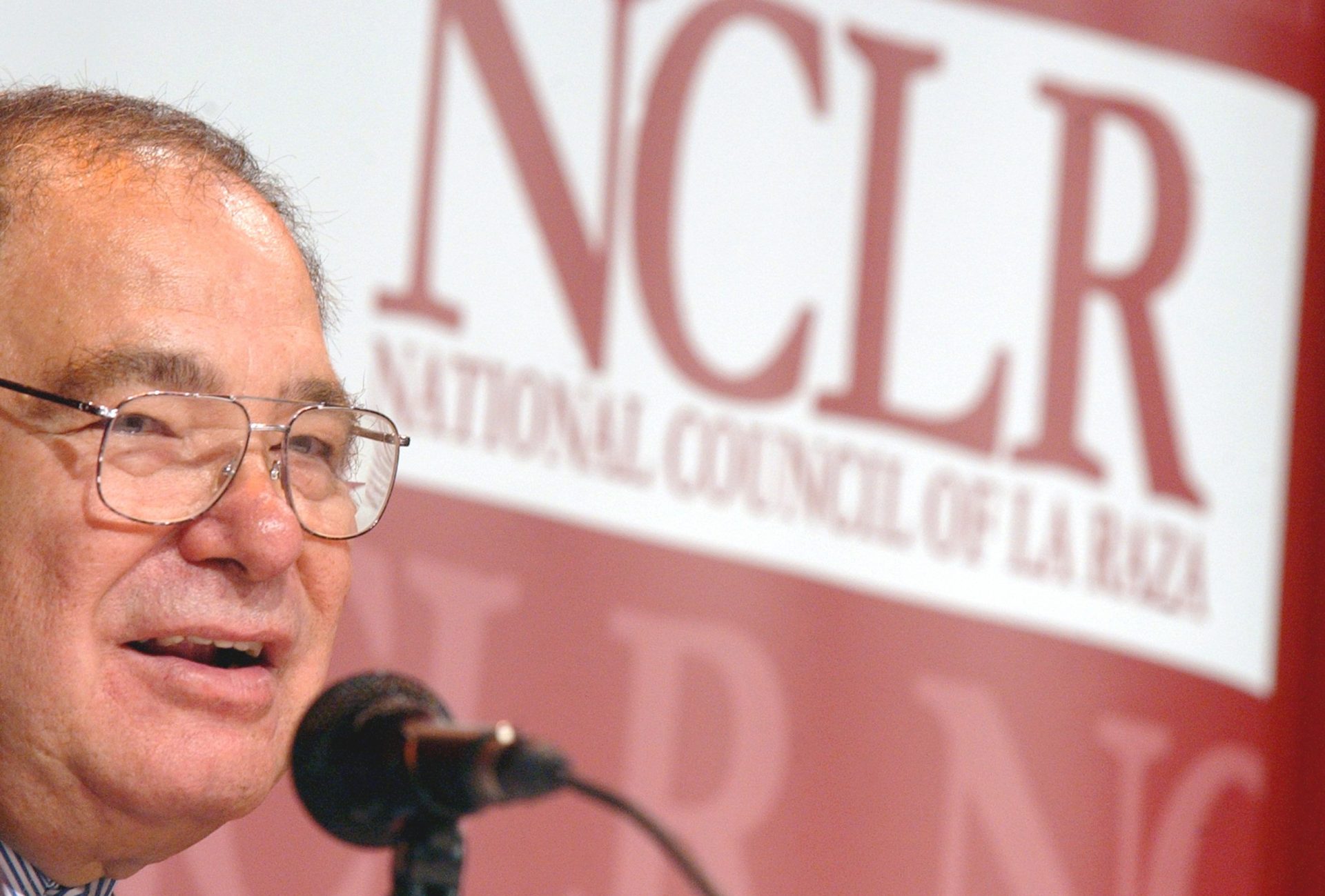
Raúl in part accomplished that, Roberto said, through sheer force of will. He was tactful, persuasive, attentive. People who spoke to him felt heard, Roberto said, and his father could combine a strident commitment to his goals with an old fashioned sense of gentility.
Roberto recalled a story related to him by former Republican Wyoming Sen. Alan Simpson, who attended and spoke at one of NCLR’s annual conferences.
“The crowd started to boo him, and my father got up and said, ‘No, stop, we’re not going to boo this man. We’re gonna listen to what he has to say.’ And then he followed up with, ‘And if you want to boo him, you can save it till the end,” Roberto said. “And so, Sen. Simpson told me this story, and he goes, ‘And they waited till the end to boo me.’”
Simpson received his own Presidential Medal of Freedom this month, sitting beside Yzaguirre. The two men briefly clasped hands and Simpson patted Yzaguirre on the arm after he’d received his medal.
Despite the successes, Raúl and his family sometimes had to sacrifice for him to retain his seat at the table. The Reagan years were hard and funds were scarce, Roberto said.
“Often during payroll, my father wouldn’t get a paycheck,” he said. “I remember my mom waiting on the mail, for the paycheck to come or to not come. It took me a long time to eat beans, because my mother would make a big pot of beans and we’d eat that all week. So there was a big family sacrifice too, but we understood what it meant.”
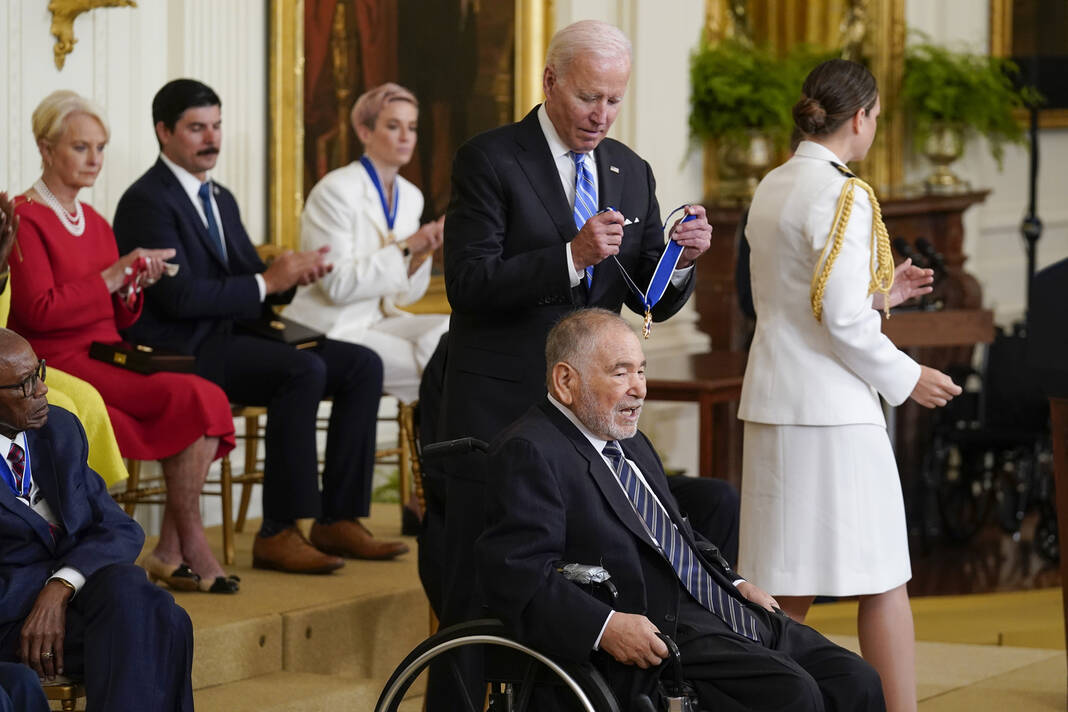
On one occasion, Roberto remembers his father receiving a lucrative job offer and asking the family whether he should take it. They said no.
“It wasn’t about the money; it never was,” Roberto said. “It was about doing the right thing.”
Raúl himself commented on how to measure progress in his statement, writing that while it can be measured in years and decades “it continues because of the actions we take today,” and singling out La Raza’s role in calling for more Latino representation at the Smithsonian.
“Those efforts led to the establishment of the Smithsonian Latino Center and now, over a quarter of a century later, to Congressional approval for a Museum of the American Latino on the National Mall,” he wrote. “Let us continue these efforts each day as we strive for a more perfect and representative union that I am privileged to be a part of.”

